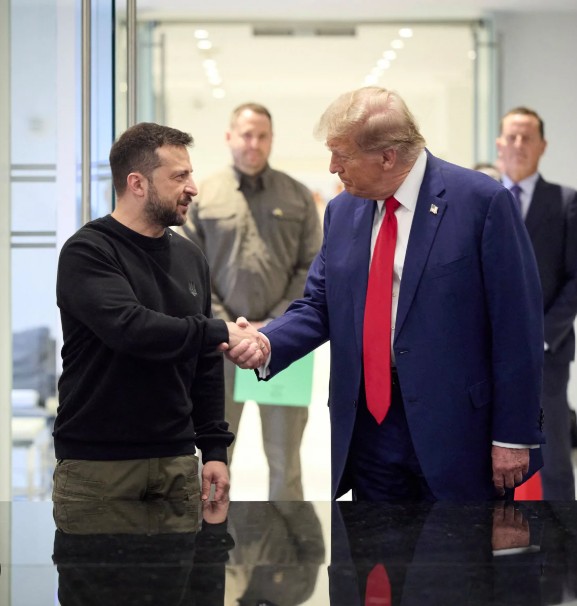Trump Dismisses Ukraine’s Concerns About Exclusion from Russia Talks

In a bold statement following the most recent round of talks between U.S. and Russian officials, President Donald Trump has dismissed Ukraine’s concerns about being excluded from the peace negotiations aimed at ending the war with Russia. Trump, speaking to reporters after the talks, expressed confidence in the progress made and suggested that the U.S. could play a pivotal role in securing a deal to bring the conflict to an end.
Trump’s Confidence in Reaching a Deal
Trump made it clear that he was “much more confident” about the possibility of a deal to end the war after his discussions with Russian officials. He described the talks as “very good” and emphasized that Russia appeared eager to reach a peaceful resolution.
“Russia wants to do something,” Trump said. “They want to stop the savage barbarianism.”
The president’s comments come amidst growing international concern that the U.S. is sidelining Ukraine in the peace process. Kyiv has been vocal in its disappointment over being excluded from direct negotiations between Moscow and Washington, with Ukrainian officials stressing that any peace deal must involve their participation.
Despite Ukraine’s objections, Trump remained resolute in his belief that a U.S.-Russia agreement could pave the way for a peaceful resolution, downplaying the need for Ukraine’s immediate inclusion in the talks.
Trump’s Dismissal of Ukraine’s Role in Peace Talks
Trump furthershared on Ukraine’s role in the war. The U.S. president stated that Ukraine should never have initiated the conflict with Russia, suggesting that Kyiv’s decision to confront Moscow had been a catastrophic error.
“You should have never started it,” Trump said, directing his comment at Ukraine’s leadership. His words were met with strong disapproval from Ukrainian officials, who argue that Russia’s unprovoked invasion of their country is the root cause of the ongoing war.
Trump’s dismissal of Ukraine’s concerns is likely to deepen the tensions between the U.S. and its European allies, many of whom have been vocal in their support of Ukraine and its right to self-determination. European leaders have already expressed alarm over Trump’s increasingly conciliatory stance toward Russia, fearing that a U.S.-led deal without Ukraine’s involvement could undermine European security.
A Shift in U.S. Foreign Policy Towards Russia
The recent talks mark a significant shift in U.S. foreign policy under President Trump, as the administration moves away from a traditional stance of support for Ukraine and embraces a more direct approach to negotiating with Russia. This pivot has raised questions about the future of U.S.-Ukraine relations and the broader geopolitical implications of such a dramatic change in course.
While the U.S. has provided Ukraine with military and financial support throughout the war, Trump’s recent comments suggest a growing willingness to prioritize diplomatic engagement with Russia over continued support for Kyiv.
European Concerns and Reactions
The exclusion of Ukraine from the peace talks and Trump’s apparent shift in policy has raised alarms in Europe, where leaders have been at the forefront of supporting Ukraine’s sovereignty and territorial integrity. Many European nations have expressed concerns that a U.S.-Russia peace deal without Ukraine’s involvement could undermine the continent’s security and embolden Russia in its broader efforts to expand its influence in Eastern Europe.
In response to Trump’s comments, several European leaders have called for greater transparency in the negotiations and reaffirmed their commitment to Ukraine’s cause. They have also reiterated the importance of including Kyiv in any peace discussions, stressing that Ukraine must have a say in any potential agreement that impacts its future.
Looking Ahead: A Fragile Peace Process
While Trump remains optimistic about the prospects for peace, the situation is still highly fluid, and it remains unclear whether the peace process will ultimately lead to a resolution of the conflict or further escalation.
The next steps will be closely watched by both U.S. and European officials, as well as by Ukrainian leaders who are determined to ensure that their country’s interests are fully represented in any future peace negotiations.
